Lemon Tree (aka Lemon Tree Kush)

The Lemon Tree strain is a well-regarded hybrid cannabis variety, appreciated for its balanced genetics and distinctive aromatic profile. A cross between Lemon Skunk and Sour Diesel, this strain inherits a sharp, citrusy scent underscored by diesel notes, making it a favorite among connoisseurs.
With a nearly equal indica to sativa ratio, it offers users a harmonious blend of mental and physical effects. The onset typically involves a cerebral uplift, potentially beneficial for those managing stress or mood disorders, which gradually transitions into a soothing body relaxation.
Given its relatively high THC content, Lemon Tree is recommended for experienced consumers. This strain is available across various legal markets, with access varying by region.
Cultivators prize Lemon Tree for its manageable growth characteristics and bountiful yield.
Genetic Lineage
The genetic lineage of the Lemon Tree strain comprises an equal blend of two prominent cannabis varieties: Lemon Skunk and Sour Diesel. This harmonious amalgamation results in a (50% indica/50% sativa) strain created through the deliberate crossing of the delicious Lemon Skunk X Sour Diesel. The cultivation of Lemon Tree embodies a meticulous selection process, ensuring that the quintessential traits of both parent strains are preserved and expressed.
Analytically, the Lemon Tree strain exhibits a balanced hybrid profile, which is the direct consequence of the genetic contributions from its lineage. Lemon Skunk, known for its invigorating citrus aroma and uplifting effects, marries well with the pungent, fast-acting qualities of Sour Diesel. This strategic combination engenders a cultivar that is cherished for its complex terpene profile and versatile effects, catering to both recreational and medicinal consumers.
The genetic synergy between Lemon Skunk and Sour Diesel is not accidental but rather a calculated endeavor to create a strain with a robust flavor profile. It encapsulates the fresh lemon zest and diesel undertones that have become the signature of the Lemon Tree strain. Furthermore, its genetic makeup has propelled it to acclaim, capturing the first prize at the 2014 Seattle Cannabis Cup for Best Hybrid, thus cementing its legacy within the cannabis connoisseur community.
History and Origin
While Lemon Tree’s genetic lineage is a testament to its contemporary popularity, its history and origin trace back to the United States’ West Coast, where innovative breeders first combined the robust genetics of Lemon Skunk and Sour Diesel. This strain created through crossing these two powerhouses has resulted in a cultivar that captures the imagination of cannabis connoisseurs and casual users alike.
The Lemon Tree strain, a balanced hybrid, emerged as a shining example of precise breeding techniques aimed at achieving a perfect equilibrium of sativa and indica traits. Its inception is marked by a careful selection of phenotypes that embody the best characteristics of the Lemon Skunk X Sour Diesel lineage. The careful calibration of these genetics has birthed a strain that not only won accolades, such as the 2014 Seattle Cannabis Cup for Best Hybrid, but also became a staple in dispensaries due to its distinct flavor profile and versatile effects.
The rich history of the Lemon Tree strain reflects a shift in cannabis culture, where the pursuit of diversity and quality in strain genetics has become paramount. Its legacy is further cemented by the numerous derivatives it has spawned, contributing to its enduring legacy on the West Coast and beyond.
THC/CBD Content
Analyzing the cannabinoid profile of Lemon Tree strain reveals a high THC content ranging between 20% to 25% and a relatively low CBD percentage, which contributes to its potent therapeutic effects. This dazzling 20-25% average THC level makes Lemon Tree a highly sought-after strain for those in need of strong medicinal relief without significant CBD to counteract the psychoactivity.
The hybrid nature of Lemon Tree, being 50% indica and 50% sativa, suggests a well-rounded effect that can soothe both mind and body. This balanced approach is appreciated by users seeking a harmonious high that doesn’t lean too heavily towards sedation or stimulation.
Here is a breakdown of Lemon Tree’s cannabinoid content:
| Cannabinoid | Percentage Range | Effect |
|---|---|---|
| THC | 20% – 25% | Potent psychoactive effects, potential therapeutic benefits for various conditions |
| CBD | Low | Minimal influence on the psychoactive experience, supports THC’s effects |
| Ratio | Hybrid (50/50) | Balanced effects, suitable for day or evening use |
This table illustrates the robust potency and intricate balance of Lemon Tree, highlighting its capability to deliver profound relief while maintaining a level of clarity and functionality for users. The low presence of CBD underscores the strain’s emphasis on harnessing high THC to address conditions like chronic pain, mood disorders, and fatigue.
Terpene Profile
How does the terpene profile of the Lemon Tree strain contribute to its distinctive aromatic qualities and therapeutic effects? The synergy between the strain’s terpenes and its high THC content creates a nuanced sensory experience and a wide array of potential health benefits. Dominant terpenes such as Limonene and Myrcene are largely responsible for Lemon Tree’s signature scent and its purported calming yet uplifting effects.
- Limonene: Imparts a sour lemon aroma, enhancing mood and stress relief.
- Myrcene: Offers a sharp tangy fragrance with sedative qualities, promoting relaxation.
- Pinene: Adds to the complexity with a hint of pine, which may aid in alertness and memory retention.
- Caryophyllene: Delivers a spicy touch that could contribute to its anti-inflammatory properties.
The blend of Lemon Skunk X Sour Diesel genetics is evident in the Lemon Tree strain’s unique terpene composition. The sour lemon aroma and the sharp tangy essence come forward, engaging the user both olfactorily and therapeutically. Expert cultivation techniques can further accentuate these aromatic compounds, ensuring a consistent and potent experience for connoisseurs seeking both recreation and relief.
Effects
One may experience a harmonious blend of cerebral invigoration and physical relaxation when consuming the Lemon Tree strain due to its potent THC levels and unique terpene profile. This balanced hybrid, with a 50% indica and sativa split, ensures an experience that is both eye-opening in flavor and dazzling in its effects.
The high THC concentration may provide a swift euphoric rush, elevating one’s mood and potentially ushering in a sense of happiness.
As the experience progresses, users often report a shift toward relaxation without the heavy sedation typical of more indica-dominant strains. This makes Lemon Tree a versatile choice for those seeking to alleviate symptoms of anxiety, stress, and depression, while still maintaining a degree of alertness and energy. The strain’s effects are not just limited to mental and emotional upliftment; many also find it to be physically soothing, which might be beneficial in easing tension and promoting comfort.
However, caution is advised for novices or those sensitive to THC. The potency may lead to less desirable effects such as anxiety, dizziness, or headaches. It is therefore recommended to approach Lemon Tree with an awareness of one’s own tolerance and to consume responsibly.
Medical Uses
Given its potent THC levels and diverse terpene profile, the Lemon Tree strain offers therapeutic potential for a variety of medical conditions, including anxiety, stress, and chronic pain. As a balanced hybrid, Lemon Tree merges the best qualities of indica and sativa varieties, providing a multifaceted approach to symptom relief. Its cerebral effects may alleviate mood-related disorders while the body high can address physical discomfort.
Patients considering the Lemon Tree strain should consult a healthcare professional for personalized medical advice, as its high THC content may not be suitable for everyone. Here are some reported benefits that have drawn patients to this particular strain:
- Relief from Chronic Pain: The analgesic properties may help soothe joint and nerve pain.
- Anxiety and Stress Reduction: Its uplifting effects can offer a calming respite for those with anxiety.
- Mood Stabilization: Lemon Tree may help in regulating mood swings, beneficial for conditions like depression and PTSD.
- Anti-inflammatory Effects: Patients have found it useful in reducing inflammation, a common culprit in various chronic diseases.
The experienced use of medical marijuana strains like Lemon Tree requires a thoughtful and educated approach, balancing the potential benefits against individual health considerations.
Flavor and Aroma
Many cannabis enthusiasts appreciate the Lemon Tree strain for its distinctive blend of sharp lemony zest and deep diesel accents, which create an invigorating sensory experience. This strain, a harmonious cross of Lemon Skunk and Sour Diesel, offers a complex aromatic profile that is as nuanced as it is pungent. The Lemon Skunk parentage imparts a sweet citrus fragrance that is immediately recognizable, while the Sour Diesel contributes a spicy and slightly peppery note that adds depth to the overall olfactory landscape.
The flavor profile of the Lemon Tree strain is equally remarkable and can be dissected as follows:
| Flavor Note | Sensory Impact |
|---|---|
| Lemon Freshness | Invigorating and uplifting |
| Diesel Sharpness | Earthy with a pungent kick |
| Citrus Complexity | Refreshing tang with subtle sweetness |
Such a profile ensures that each inhalation is a rich, multi-layered experience, stirring emotions ranging from energized focus to contented relaxation. The strain’s capacity to enhance the enjoyment of various activities, like listening to music or savoring a meal, is a testament to the careful balance of flavors that resonate with both novice and seasoned consumers. The Lemon Tree strain’s flavor and aroma are not just perceived; they are felt, leaving a lasting impression that is both memorable and delightful.
Appearance
The Lemon Tree strain’s visual allure complements its aromatic complexity, showcasing dense, trichome-laden buds with a vibrant light-green hue. This meticulously balanced hybrid presents an aesthetic that is as delightful to the eye as its flavor profile is to the palate. The nugs are not only a feast for the senses but also an indicator of the potent experience that awaits. With intricate characteristics, Lemon Tree’s buds exhibit a symphony of colors and textures that echo its rich lineage and the careful cultivation it undergoes.
- Vibrant Light-Green Buds: The buds are a lively shade of green, indicating freshness and vitality.
- Dense Trichome Coverage: A thick coating of trichomes gives the buds a frosty appearance, hinting at potency.
- Diesel and Sour Notes: Subtle hints of diesel and sour elements are visible in the resinous glands, promising a complex experience.
- Robust Hybrid Structure: The balanced 50/50 Indica-Sativa composition is evident in the buds’ perfectly blended structure.
An analytical view of the plant reveals its height variations, indicating adaptability to both indoor and outdoor cultivation. The Lemon Tree strain is a testament to the art of cannabis breeding, where visual appeal and sensory satisfaction are cultivated with equal importance.
Grow Information
Cultivators frequently report that the Lemon Tree strain requires moderate attention to detail during its growth cycle to ensure optimal yields and robust flavor development. As an evenly balanced hybrid, Lemon Tree demands an environment that accommodates its unique genetic needs.
When managing grow information, it is imperative to consider its spatial requirements; indoors, Lemon Tree plants typically reach a manageable height of 90-100 cm. However, to achieve the substantial yield of up to 650g/m2, growers must provide a controlled climate and adequate lighting, mimicking the strain’s preferred natural conditions.
Outdoor cultivation allows Lemon Tree to stretch to its full potential, sometimes soaring up to 2 meters, and yielding as much as 1.5 kg per plant. Careful timing is crucial, with harvests concluding from mid to late October, depending on climate and weather patterns.
For germination, Lemon Tree cannabis seeds should be stored appropriately—cool, dark, and airtight—and handled with care. The paper towel method remains the standard for sprouting these seeds, ensuring the taproot’s emergence in a protected, humidified environment before transplanting to soil or another chosen growth medium. Maintaining moisture without over-saturation is key during this delicate stage.
Successful cultivation of the Lemon Tree strain results in a bountiful harvest of citrus-scented buds, with a nuanced diesel finish that delights connoisseurs and patients alike.
Adverse Effects
Some users of the Lemon Tree strain report adverse effects such as anxiety, dizziness, and headaches, particularly due to its high THC content. This hybrid, which has been recognized at the Cannabis Cup for Best Hybrid, is known for its potent characteristics, largely attributable to its genetic lineage of Skunk X Sour Diesel. While many appreciate its cerebral and euphoric effects, the high THC levels can induce less desirable reactions in some individuals.
To provide a clearer understanding, here is an analytical enumeration of the adverse effects associated with Lemon Tree:
- Anxiety: Heightened THC levels may exacerbate feelings of paranoia or anxiety in sensitive users.
- Dizziness: A common side effect, especially for those new to cannabis or unaccustomed to high-THC strains.
- Headaches: Overuse or individual sensitivity can lead to tension headaches post-consumption.
- Dry Mouth and Eyes: As with many cannabis strains, Lemon Tree may cause temporary dryness, often referred to as ‘cottonmouth’ and red eyes.
These adverse effects are typically dose-dependent and may be mitigated by consuming the strain in moderation. Experienced users recommend staying hydrated and pacing oneself to avoid any overwhelming experiences, especially when indulging in a strain as robust as Lemon Tree.
Comparisons with Similar Strains
Exploring strains akin to Lemon Tree, such as Super Lemon Haze and Sour Diesel, offers enthusiasts alternatives with comparable flavor profiles and therapeutic benefits.
Super Lemon Haze, a vivacious sativa-dominant hybrid, shares Lemon Tree’s citrusy essence but leans more towards a zesty lemon candy aroma. It’s celebrated for its energetic and lively effects, which sharply contrast with Lemon Tree’s balanced euphoria.
On the other hand, the Sour Diesel strains, with their invigorating skunk and diesel smell, provide a more pungent alternative that aligns closely with Lemon Tree’s aromatic undertones.
In terms of therapeutic use, Sour Diesel is particularly noted for its fast-acting relief in stress and depression, paralleling Lemon Tree’s efficacy in elevating mood and mitigating anxiety. Both strains boast a lineage that includes Skunk genetics, contributing to their robust terpene profiles and potent outcomes.
Within the cannabis connoisseur circles, Lemon Tree is often regarded as a confluence of the best qualities of these similar strains—blending the pronounced lemon taste with the powerful relief commonly associated with Sour Diesel variants.
As the cannabis market continues to evolve, understanding the nuances between these strains allows users to tailor their experience, whether they seek the balanced harmony of Lemon Tree or the distinct characteristics of its counterparts.
Research and Studies
Building upon the accolades and user-reported benefits, recent research into the Lemon Tree strain focuses on its therapeutic potential, especially in the context of chronic pain and mood disorders. Scientific investigations are delving into the unique blend of terpenes and cannabinoids that define Lemon Tree’s profile, informed by its parentage of Lemon Skunk X and Sour Diesel strains. These studies aim to substantiate anecdotal evidence with empirical data, exploring how the strain might contribute to palliative care and mental health treatment.
To capture the essence of this research, consider the following key points:
-
Genetic Analysis: Examining the lineage of Lemon Tree to understand the inheritance of traits from Lemon Skunk X and Sour Diesel strains.
-
Cannabinoid Profile: Detailed characterization of THC and CBD levels that contribute to its potency and therapeutic effects.
-
Terpene Synergy: Investigations into the terpene composition that may enhance Lemon Tree’s efficacy through the entourage effect.
-
Clinical Trials: Pilot studies assessing the impact of Lemon Tree on chronic pain and mood disorders, paving the way for new strains with optimized therapeutic profiles.
This analytical approach provides a comprehensive understanding of Lemon Tree’s potential, guiding both consumers and healthcare professionals in their choices regarding cannabis-based treatments.
Frequently Asked Questions
Is Lemon Tree a Sativa or Indica?
The inquiry pertains to the classification of a cannabis variety with a citrus fragrance. This strain exhibits hybrid vigor, combining therapeutic benefits and lemon aroma, indicative of neither pure Sativa nor Indica dominance.
Is Lemon Tree Punch a Sativa or Indica?
Lemon Tree Punch, with its distinct lemon flavor profile, offers therapeutic effects ideal for relaxation. Its cultivation techniques hinge on careful genetic selection, indicating a thoughtful balance between Sativa and Indica properties.
Is Lemon a Sativa or Indica?
Lemon-flavored cannabis strains often exhibit citrus terpenes that hint at Sativa dominant effects, including increased alertness and cerebral stimulation, rather than the sedative qualities typically associated with Indica strains.
Is Lemon Tree Strain Easy to Grow?
Evaluating the ease of cultivation, one must consider growing challenges, climate suitability, and nutrient requirements. With manageable growth characteristics, a strain like this typically presents moderate difficulty, adaptable to various environments and standard feeding regimens.

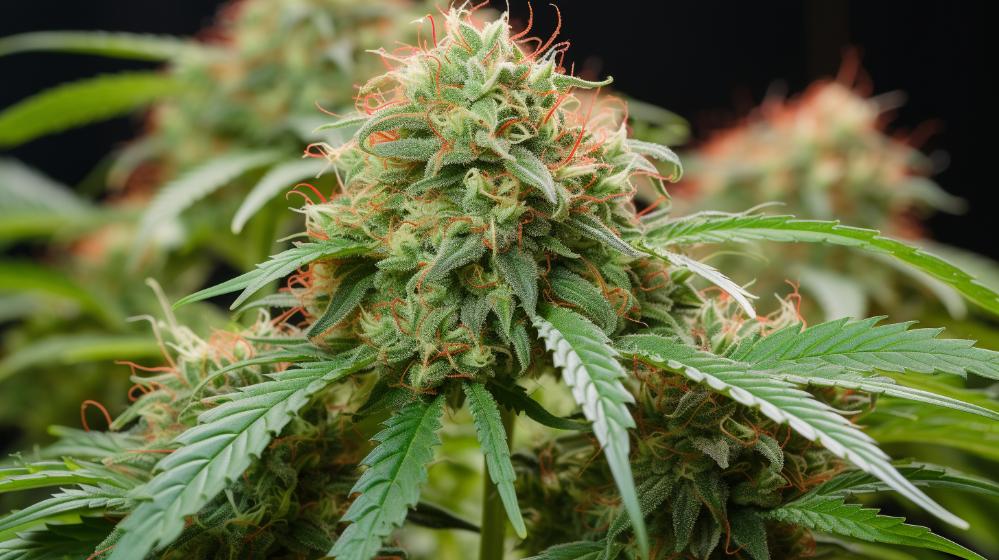
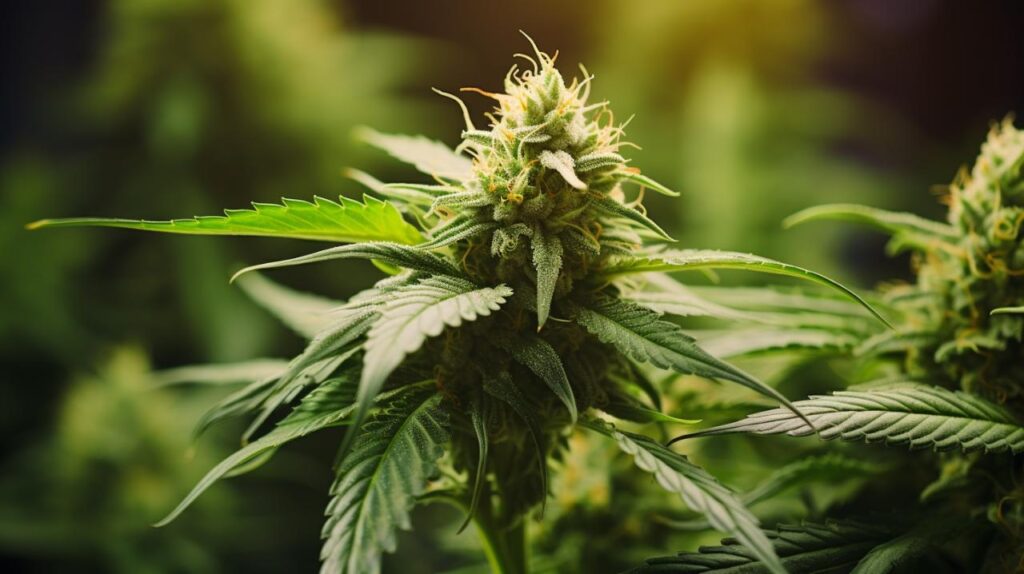
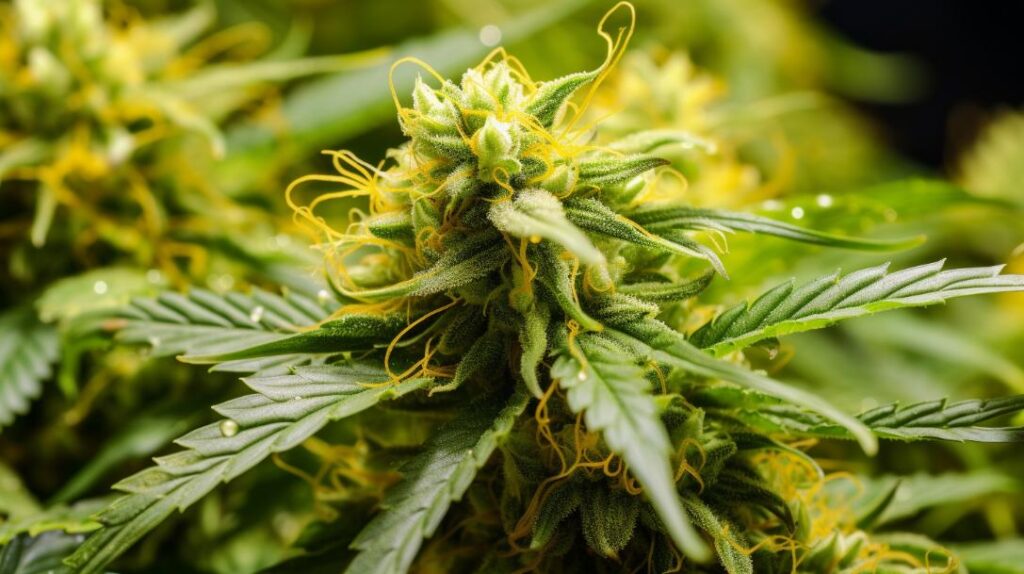
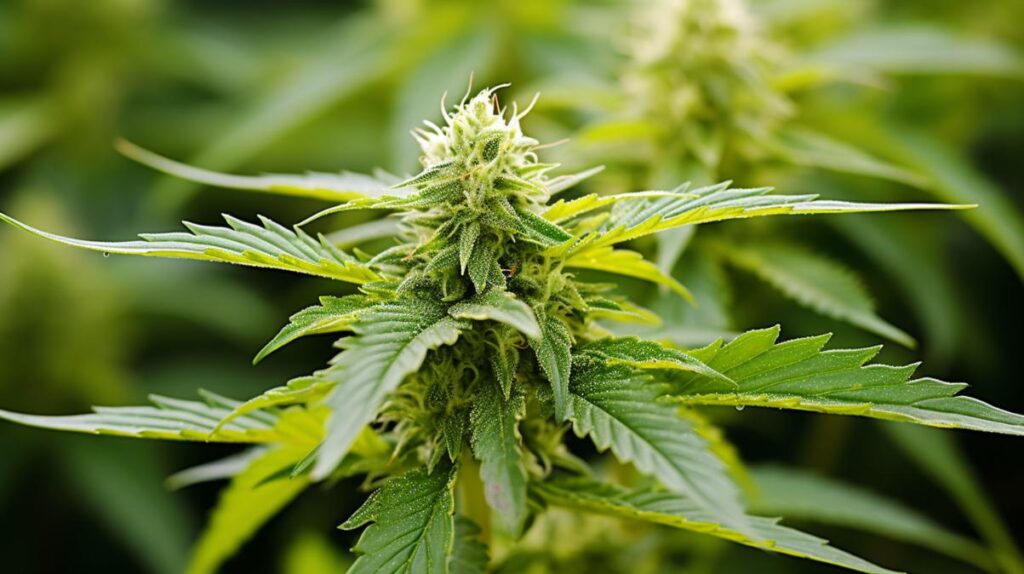
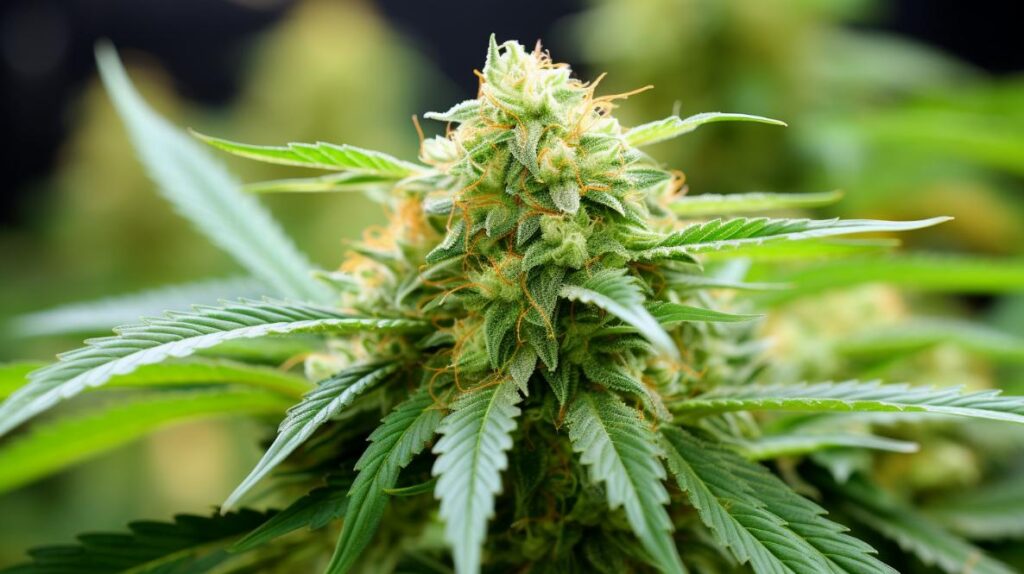

Responses